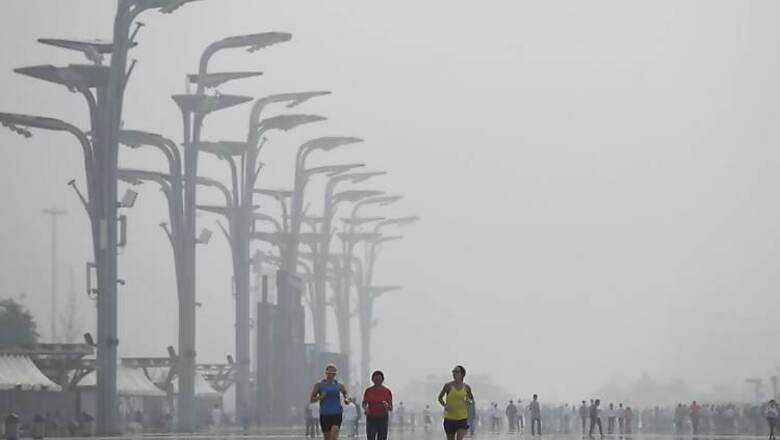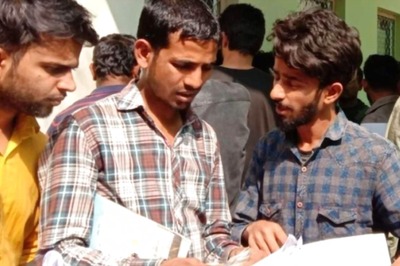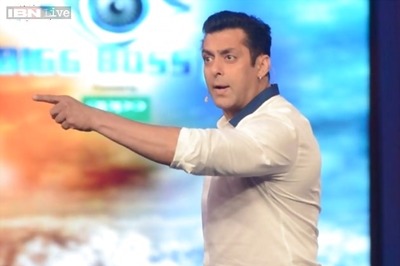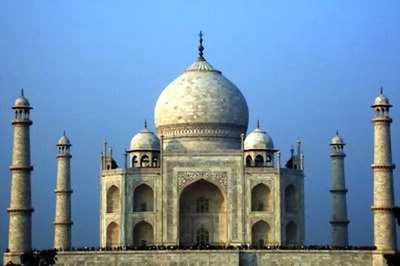
views
Hyderabad: For me, it is an honour to represent India as one of the Parliamentarian delegates at the Paris Climate Conference. I have been a keen observer of climate related issues. Environment is one of my areas of interest. I have been discussing, debating and writing about these issues for some time. Just a few days ahead of the Paris Climate Conference, India has exposed the hypocrisy of the West and the USA on environment related issues. I am happy that Union Environment and Forest Minister Prakash Javadekar has strongly hit back at the US Secretary of State John Kerry for his statement that the India will be a "challenge" in the coming climate change talks in Paris. "It is in a way unfair to say that India will be a challenge. It is actually not doing justice to India," Javadekar said.
I fully agree with India's stand. It is a well known fact that the highly industrialised West and its greed to accumulate more wealth and corner all natural resources have resulted in environmental degradation all over the World. The West has actually created the ecological imbalance. Instead of admitting its primary role in destroying the ecology, the same West is giving sermons to rest of the World.
According to media reports, "We've got a lot of focus on India right now to try to bring them along. India has been more cautious, a little more restrained, in its embrace of this new paradigm, and it's a challenge," John Kerry had told an international business daily.
The coverage of Climate Change in the Western media is also one sided. They are also toeing the line of Western governments blaming the developing countries and the third world nations for the environmental mess.
In an article titled 'India caught in climate change quandary' for International New York Times, Eduardo Porter writes, "And India is going to be hammered by climate change. The livelihood of 600 million Indians is threatened by the expected disruption of the southwest monsoon from July to September, which accounts for 70 per cent of India's rainfall. India's rivers depend on the health of thousands of Himalayan glaciers at risk of melting because of a warming climate, while 150 million people are at risk from storm surges associated with rising sea levels. A lot of damage is already inevitable, a consequence of the emissions of heat-trapping greenhouse gases by richer countries. So, many Indians ask, why must we pay more? On what grounds can India be asked to temper its use of energy to limit its emissions of greenhouse gases like carbon dioxide?"
He argues that the successful resolution of this confrontation of priorities does not matter just for India's sake. The tension between economic development and the imperative to curb greenhouse gas emissions remains the central challenge of the diplomatic effort to muster a coalition of rich and poor countries to combat climate change.
According to The United Nations, India's population is expected reach 1.5 billion by 2030, bigger than China's. If over the next 15 years, it follows anything like the fossil fuel-heavy path out of poverty that China took over the last 15, it could blow any chance the world has of preventing a disaster. A critical question for anyone with a stake in preventing a climatic catastrophe is how to conceive and finance a development path for 1.5 billion Indians that prevents this outcome. Scientists and environmentalists, executives and government diplomats packing their bags to attend the climate summit meeting in Paris, starting November 30, must keep the challenge in mind, he writes.
The current unseasonal rains in parts of Tamil Nadu, Andhra Pradesh and Karnataka are also being attributed to Climate Change. Some experts warn that the situation is going to get worse, if we don’t take serious and necessary steps to prevent the ecological imbalance.
But, it is easier said than done. The West has been plundering the virgin forests across the third world for natural resources for the past 500 years. Our minerals, timbers, sea foods, oil and other petroleum products have made the Europe and America what they are today. They have been plundering Asia, Africa and South American continents for centuries. Their bottomless greedy actions have resulted in the disaster we are facing today.
In my opinion, we need to do following things in India on a war footing to achieve some visible results.
We need to clean up and rejuvenate our major rivers and lakes. Like Clean Ganga, they should not remain just on the papers with little action on the ground. Only a doable plan can save our rivers, not mere slogans and speeches.
We need to clean all drainages in all major cities. It can clean our polluted air to some extent. We also need to regulate the growth of our cities. We can’t stop industrialisation and mining to save ecology. If we do that economy will collapse and will lead to a bigger disaster. But, we need to enforce strict laws to regulate them. We need to strike a fine balance between growth and environment.
Each district in India should have its own elaborate, doable plan to save our ecology. These plans should be custom made for that particular district and fulfil all local demands. The West's "one size fits all" policy won't help in India. Our problems and challenges are entirely different from that of the West.
I hope that the Climate Change Conference will address these issues in a meaningful manner and it won't be a yet another sermon giving ceremony for the powerful Western nations led by the USA.
(Author Kalvakuntla Kavitha is MP Nizamabad Lok Sabha Seat in Telangana State. She has studied in the USA and passionate about environment related issues)




















Comments
0 comment